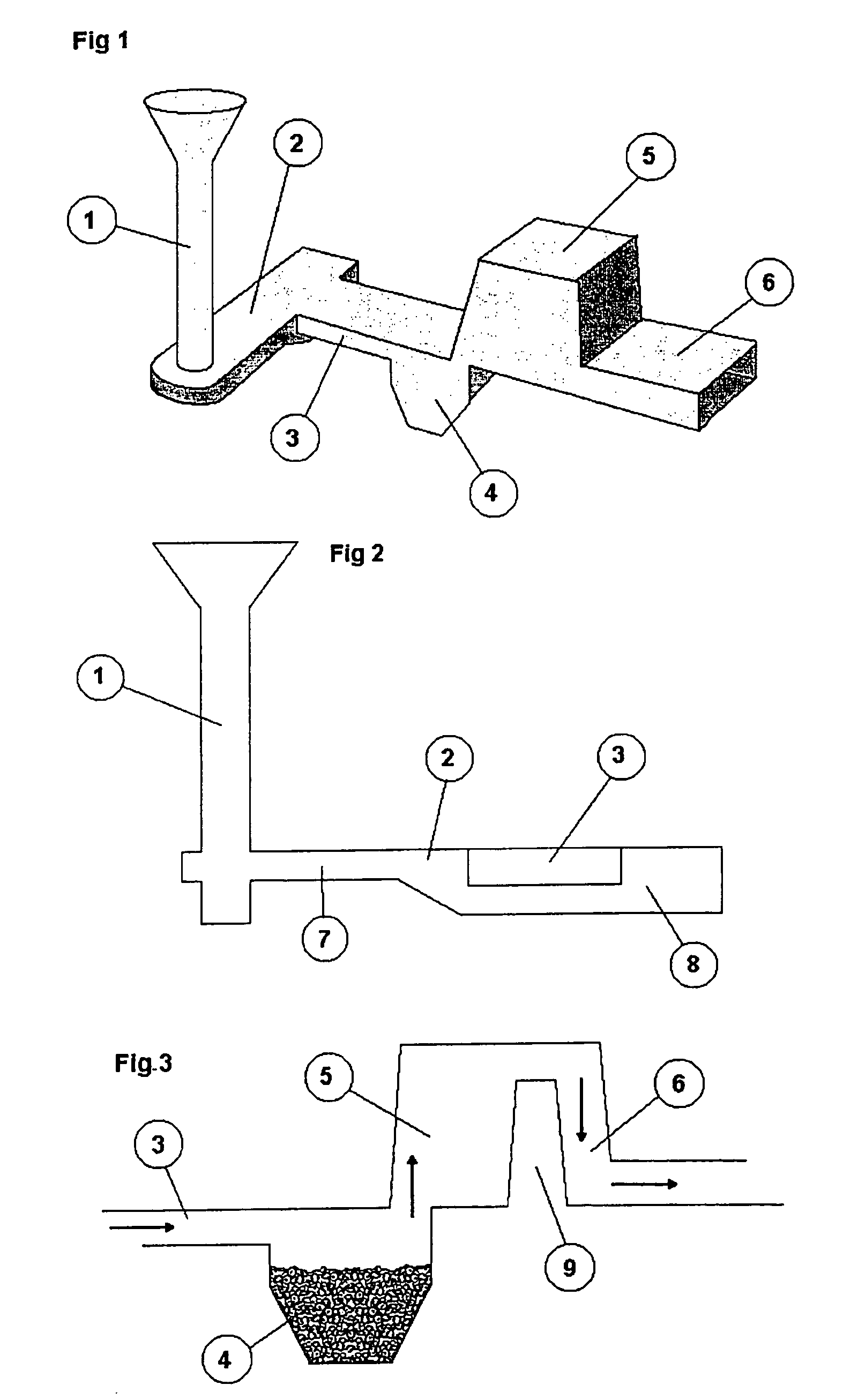Process for Production of Compacted Graphite Iron
a graphite iron and compacted technology, applied in the field of cast iron production, can solve the problems of affecting the cooling rate of the base iron, the sulphur level of the base iron is often variable, and the structure is sensitive to the cooling rate variation
- Summary
- Abstract
- Description
- Claims
- Application Information
AI Technical Summary
Benefits of technology
Problems solved by technology
Method used
Image
Examples
Embodiment Construction
[0006]It is an object of the present invention to solve these problems.
[0007]The invention concerns a process for production of compacted graphite iron using in-mould addition of a magnesium alloy in accordance with claim 1. Preferred embodiments are defined in the dependent claims.
[0008]The amount of cerium is adjusted in relation to the sulphur content in the base iron. The cerium level should be adjusted according to the formula:
%Cerium=(%Sulphur−0.006)* 2.9+A.
[0009]The value for A varies preferably between 0.01 and 0.03 depending on the configuration of the casting i.e. variation in section dimensions and casting modulus. As cerium has a very high boiling point (3470° C.) and a high density (6.14 g / cm3) it does not show any fading effect. By adding cerium to the base iron it can be properly dissolved and less magnesium alloy has to be added in the reaction chamber in the mould as cerium also has a structure forming effect.
[0010]The treatment alloy preferably contains 3-6% magne...
PUM
| Property | Measurement | Unit |
|---|---|---|
| temperature | aaaaa | aaaaa |
| temperature | aaaaa | aaaaa |
| structure | aaaaa | aaaaa |
Abstract
Description
Claims
Application Information
 Login to View More
Login to View More - R&D
- Intellectual Property
- Life Sciences
- Materials
- Tech Scout
- Unparalleled Data Quality
- Higher Quality Content
- 60% Fewer Hallucinations
Browse by: Latest US Patents, China's latest patents, Technical Efficacy Thesaurus, Application Domain, Technology Topic, Popular Technical Reports.
© 2025 PatSnap. All rights reserved.Legal|Privacy policy|Modern Slavery Act Transparency Statement|Sitemap|About US| Contact US: help@patsnap.com

